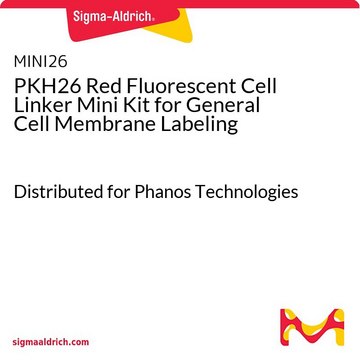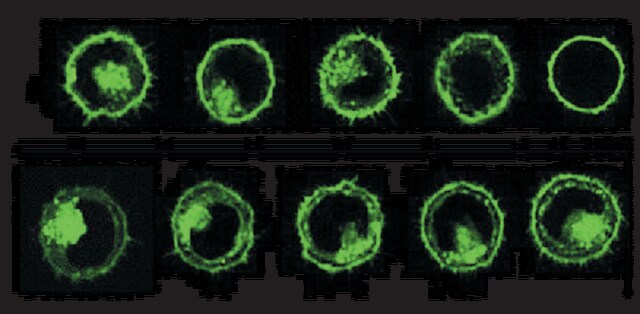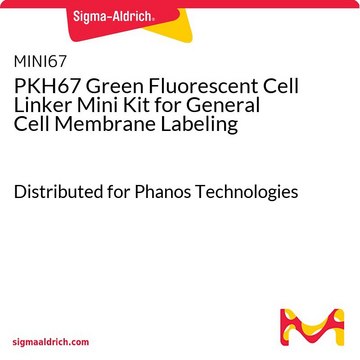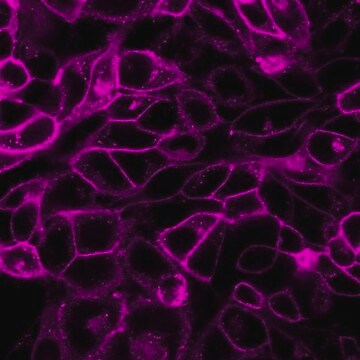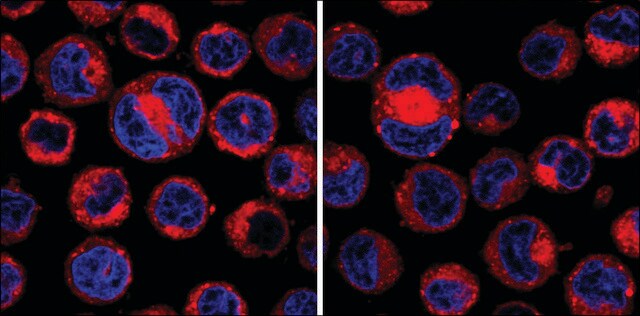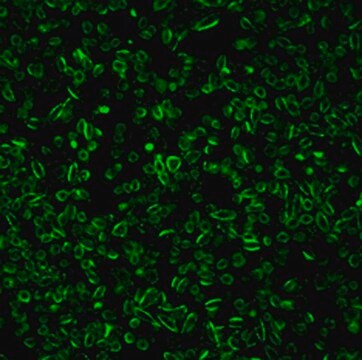PKH26GL
PKH26 Red Fluorescent Cell Linker Kit for General Cell Membrane Labeling
Distributed for Phanos Technologies
Sinónimos:
Red PKH membrane dye
About This Item
Productos recomendados
envase
pkg of 1 kit
Nivel de calidad
fabricante / nombre comercial
Distributed for Phanos Technologies
condiciones de almacenamiento
protect from light
fluorescencia
λex 551 nm; λem 567 nm (PKH26 dye)
método de detección
fluorometric
Condiciones de envío
ambient
temp. de almacenamiento
room temp
Descripción general
Aplicación
Ligadura / enlace
Información legal
Solo componentes del kit
- Diluent C 6 x 10
- PKH26 Cell Linker in ethanol .5 mL
Producto relacionado
Palabra de señalización
Danger
Frases de peligro
Consejos de prudencia
Clasificaciones de peligro
Eye Irrit. 2 - Flam. Liq. 2
Código de clase de almacenamiento
3 - Flammable liquids
Clase de riesgo para el agua (WGK)
WGK 1
Punto de inflamabilidad (°F)
57.2 °F - closed cup
Punto de inflamabilidad (°C)
14.0 °C - closed cup
Certificados de análisis (COA)
Busque Certificados de análisis (COA) introduciendo el número de lote del producto. Los números de lote se encuentran en la etiqueta del producto después de las palabras «Lot» o «Batch»
¿Ya tiene este producto?
Encuentre la documentación para los productos que ha comprado recientemente en la Biblioteca de documentos.
Los clientes también vieron
Artículos
PKH dyes are easy to use and achieve stable, uniform, and reproducible fluorescent labeling of live cells. PKH dyes are non-toxic membrane stains which produce high signal to noise ratio.
Lipophilic cell tracking dyes enable cancer biologists to track tumor and immune cell functions both in vitro and in vivo. Read the article to choose a right membrane dye kit for cell tracking and proliferation monitoring.
Optimal staining is a key component for studying tumorigenesis and progression. Learn useful tips and techniques for dye applications, including examples from recent studies.
A video about how you can use fluorescent cell tracking dyes in combination with flow and image cytometry to study interactions and fates of different cell types in vitro and in vivo.
Nuestro equipo de científicos tiene experiencia en todas las áreas de investigación: Ciencias de la vida, Ciencia de los materiales, Síntesis química, Cromatografía, Analítica y muchas otras.
Póngase en contacto con el Servicio técnico